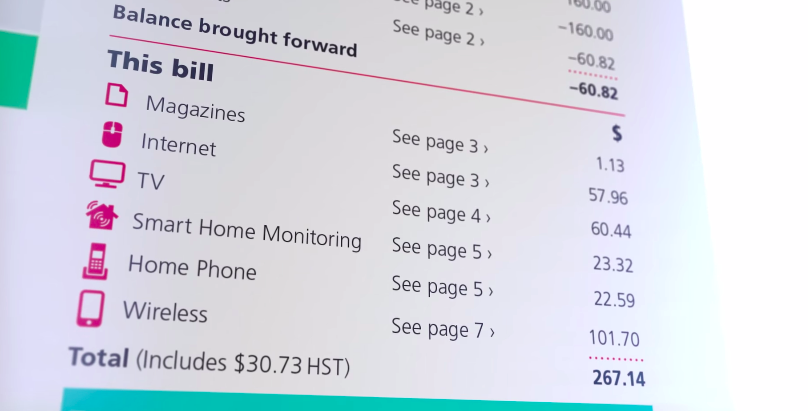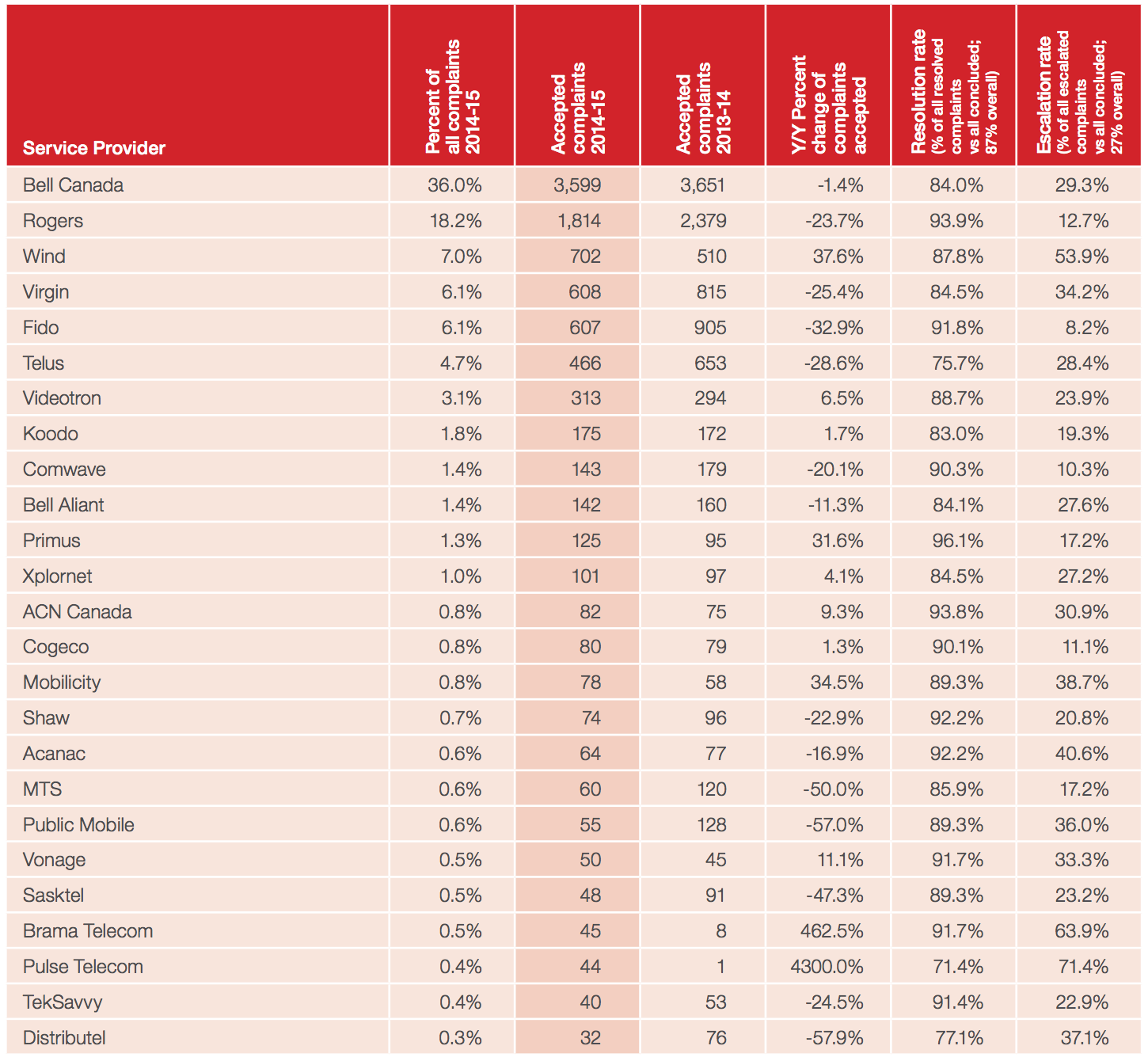
As it does on an annual basis, the Commissioner for Complaints for Telecommunications Services (CCTS) has published its Annual Report for 2014-2015, summarizing the various issues consumers face when it comes to their telco providers.
Though total submissions declined 12 percent over last year, Bell once again received the highest number, accounting for 3,599, or 36 percent, accepted complaints through the year. Bell wasn’t just the biggest offender in the list; it declined the least in the number of complaints issued between 2014 and 2015, at just 1.4 percent. Virgin Mobile, Bell’s flanker brand, was the most complained-about affiliate telco in the list, with 608 submissions, though it reported a reduction of 25 percent year over year.
Rogers emerged second with 1,814 complaints, down 23.7 percent year on year. Rogers and its flanker brand Fido, which recorded 607 submissions, a 32.9 percent year over year reduction, had the highest rate of resolution, too, which means that despite a hefty number of issues with its services, consumers generally left the interactions feeling positive towards the company.
Telus, despite having the lowest number of complaints among the Big Three, dropped another 28.6 percent over last year. With 466 accepted submissions, Telus accounted for only 4.7 percent of the total this year, though its resolution rate, at 75.7 percent, was the lowest of the Big Three. Koodo, Telus’s flanker brand, amassed 175 complaints, up 1.7 percent from the previous year but still lower than Fido or Virgin.

The biggest rise in submissions came from Wind Mobile, which, at 702 complaints, was up 37.6 percent from the previous year. While the growth can likely be attributed to a growing user base, Wind also accounted for the highest number of breaches in the Wireless Code, many of them due to confusion around its “unlimited” data plans.
The CCTS notes that in the past year there was 80 complaints centred around an unnamed service provider’s “unlimited talk, text and data in Canada and unlimited roaming from anywhere in the U.S. for a flat monthly rate” plan.
The summary continues, “Many of them suddenly found themselves without service, having received no warning from the provider. The company informed these customers that their service had been suspended due to ‘excessive usage’ in contravention of its Fair Use Policy.” Wind Mobile’s unlimited plans state in the fine print that depending on the location and availability of add-ons, service may be slowed after 5GB of usage in Canada, and 1GB of usage roaming in the US.
After a number of months, the CCTS was able to resolve the issue directly with a senior executive at Wind, which has since changed its Fair Use policy to make these soft limits more obvious to new and existing customers. According to the CCTS, Wind contravened the Wireless Code of Conduct not because it set limits for its customers, but because it didn’t clearly disclose those limits.
Another interesting test of the Wireless Code of Conduct emerged this year. One of the most useful facets of the document protects customers from excess data overages or roaming charges. In particular, if a customer goes over his or her data plan by $50, or exceeds $100 in roaming fees, access to the network is suspended until consent is granted to continue billing. In theory, the person consenting to the renewal of charges should be the primary account holder who, in many cases found by the CCTS, is a parent or guardian.
With the rise of share plans, kids are often the beneficiaries of shared data buckets, using them with little consideration for limits or fees. As per the Wireless Code, carriers are required to send text or email-based alerts when a person is approaching his or her data limit, and again when that limit has been reached. But in many cases, the person who has broached that wall is not the primary account holder, which leads to situations where the Wireless Code is unsuccessfully notifying the correct person.
In all, the CCTS posits that the number of telco-related issues has dropped year over year, and that most of them relate to incorrect charges or unclear terminology in contracts.


